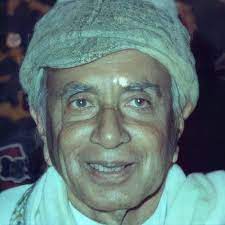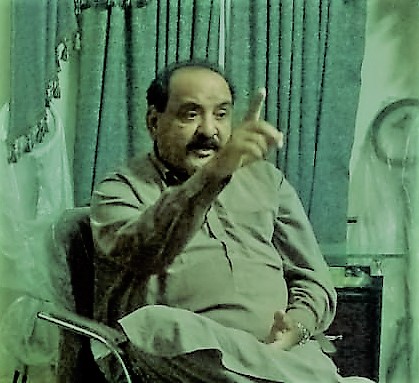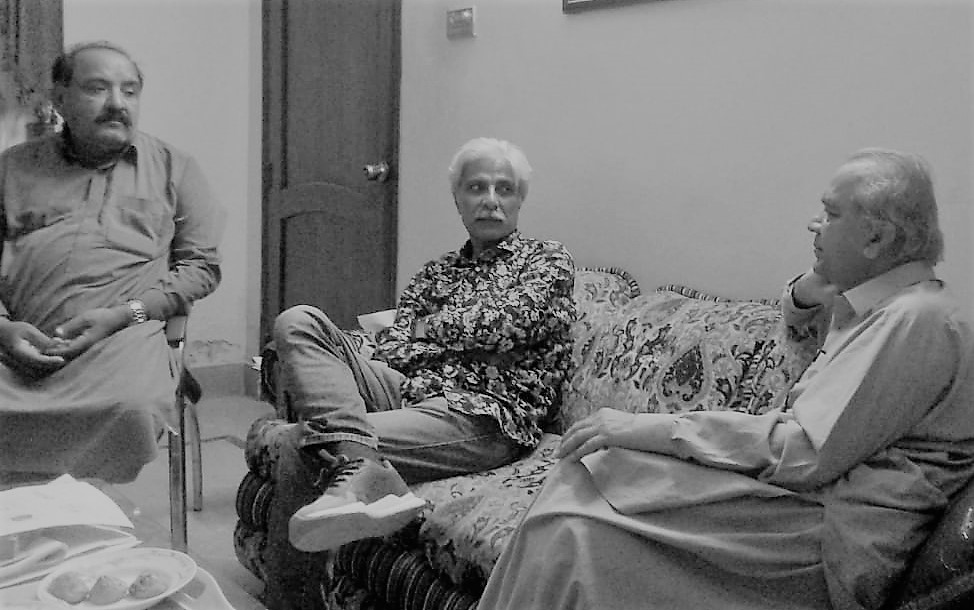
G. M. Syed’s Servitude
[Author’s Note: Will and Ariel Durant’s book – The Story of Civilization’s first volume appeared in 1935 and a complete set of eleven volumes was published in 1975. The authors took more than four decades to complete the manuscript. The readers well received the book. Therefore, their presence was sought in radio shows and press briefings. Will Durant has mentioned in one of his interviews that most common question around the globe was: ‘what is most important in human civilization, Intelligence, health or character? Will Durant responded the question that first comes the character, then health, and in the last – intelligence. I believe so, and it is still relevant in all walks of life.
I am of the view that in Sindh’s politics Mr. GM Syed, the nationalist leader and founder of Jeay Sindh Movement, was the powerhouse of ideas, and torchbearer of morality. Let me not shy, and state that he was the only politician, who practiced his ethos across the board, irrespective of political differences, power, age, class, and gender. I had been pondering over to document Jeay Sindh workers’ personal encounters with GM Syed. The present note was narrated to this scribe by Qamar Zaman Rajpar. Mr. Rajpar, who had been associated with Jeay Sindh Students Federation, now works with the Pakistan Muslim League (Nawaz Sharif). He has witnessed so many important events and incidents, and one of it is being presented here. This is 13th article of this series.]
Dr. Zaffar Junejo
Almost all the researchers would agree that Zulfikar Ali Bhutto’s era was the golden period of popular politics. In those days, villages became vibrant and cities displayed their latent street power. The emergent subculture was hippie life, bell-bottom, unbuttoned shirts and handcuffs. Simultaneously, Urdu film industry came with ‘super hits’. At that time, Sindhi films were toddling. In 1976 ‘Ach Ta Bhakur Payun’ was released, staring Chakori, Mushtaq Changezi, Malik Anokha, and Sheikh Sindhi, which hit the cinemas of Hyderabad, Larkana, Nawabshah and other cities of Sindh.
On the other hand, the newspapers, and even the state owned TV carried the Libyan State head Colonel Qaddafi and Palestine Liberation Organization leader Yasser Arafat’s inspiring statements. But at Rawalpindi, Bhutto was retreating from his natural constituency – students, workers and progressive people – he was expelling the party’s leftist ideologues. In Sindh, Jeay Sindh Students Federation was opponent of Bhutto’s policies and in Karachi city the leftist student groups also opposed Bhutto’s government. At that time, Sann was the only place, where students and political workers came to refresh or even hide for certain days.

Recently, I conversed with Mr. Qamar Zaman Rajpar, a former leader of Jeay Sindh Students Federation, and now one of provincial leader of Muslim League (Nawaz Sharif). The focus of conversation was to discuss Saeen G. M. Syed’s attitude when a lot of students, and various political workers, who were on run from the Criminal Investigation Department and the police.
In response to my question, he shared his personal experience of G. M. Syed’s servitude. “It was the winter of 1976, and Pakistan had begun diplomatic relations with Bangladesh, which just five years back was known as East Pakistan,” he said and continued, “I, accompanied by some friends, reached Sann. At that night there were eight students from Sindh University and Liaquat Medical College (now Liaquat University of Medical & Health Sciences)”.
“We discussed emerging political situation,” Mr. Rajpar said but soon corrected himself saying that it was not discussion. “In fact, the students asked questions or raised certain points and Saeen G. M. Syed commented or responded,” he told.

“In those days there was no electricity, and in the winter spree dogs used take away as well as play with shoes of the guests,” he said recalling that all the students slept in the same hall where they had conversed with Saeen G. M. Syed. “We had put our shoes at the door of the hall. Early morning, when I woke up and went out, I saw Saeen GM Syed collecting shoes (scattered by dogs) from the courtyard, pairing and then placing them orderly in front of the door,” Mr. Rajpar told and ended his conversation with a reverted tone that ‘such an act of servitude of a great person is everlasting – unforgettable’.
[author title=”Dr. Zaffar Junejo ” image=”https://sindhcourier.com/wp-content/uploads/2021/11/Dr.-Zaffar-Junejo-Sindh-Courier.jpg”]Dr. Zaffar Junejo has a Ph.D. in History from the University of Malaya. He is freelance writer and his areas of interest are post-colonial history, social history and peasants’ history.[/author]
Click here for Part-I, Part-II, Part-III, Part-IV , Part-V, Part-VI,
Part-VII, Part-VIII, Part-IX, Part-X, Part-XI, Part-XII